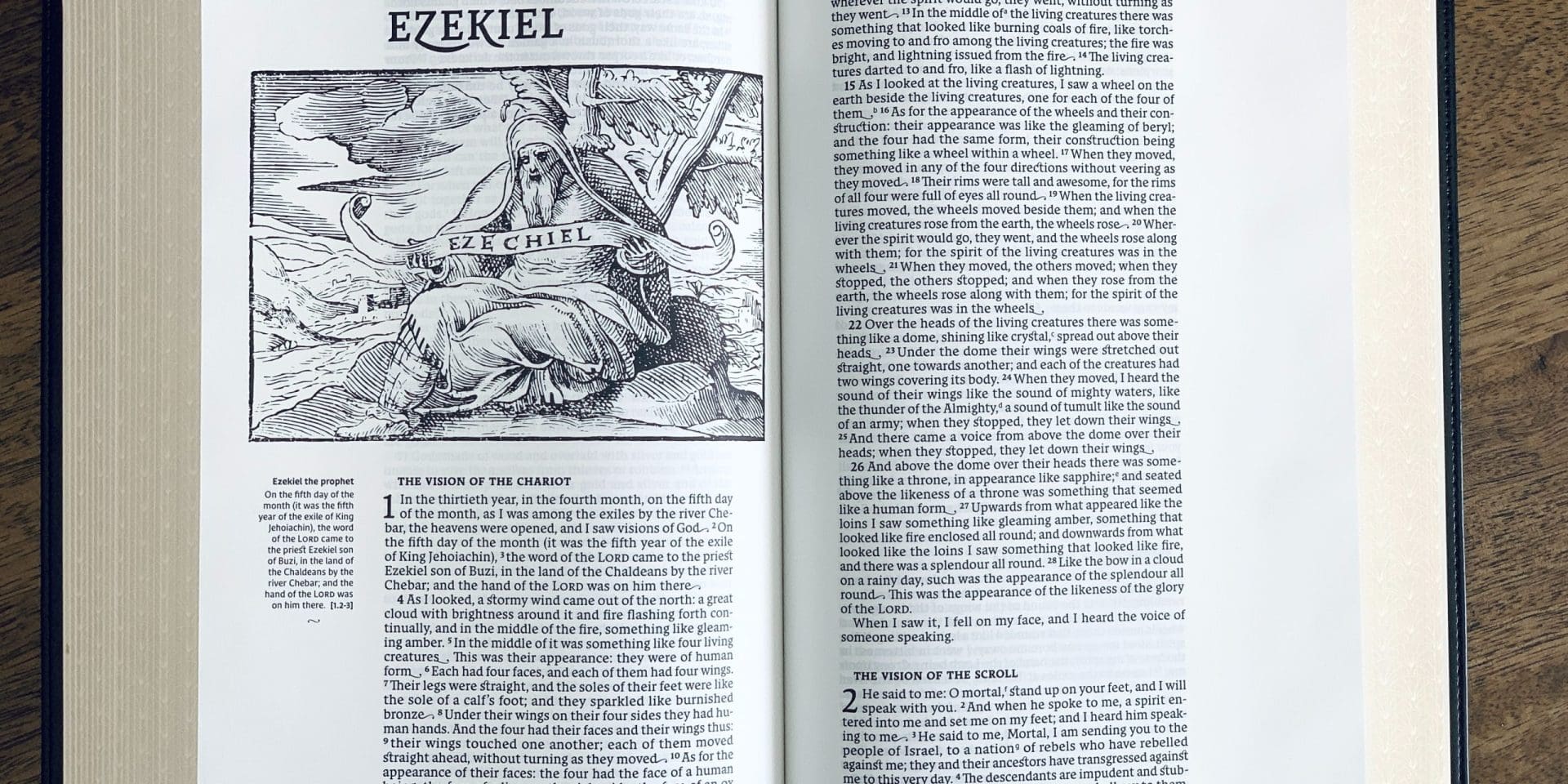In Ezekiel 34 we read about God’s indictment against the spiritual shepherds of Israel who oppressed and mislead His people and His promise to raise up for His people a good and true shepherd who will lead the people in the right way. “And they shall no more be a prey to the heathen,” God says, “neither shall the beast of the land devour them; but they shall dwell safely, and none shall make them afraid. And I will raise up for them a plant of renown, and they shall be no more consumed with hunger in the land, neither bear the shame of the heathen any more” (vv. 28-29 KJV).
While God’s message is crystal clear, there is some question regarding how verse 29 should be translated. In the Hebrew it says that God will raise up for His people “maṭṭāʿ šēm” (pronounced mat-taw’ shame) a Hebrew phrase the KJV renders as “a plant of renown” but which the ESV translates as “renowned plantations.” The former translates the Hebrew as a person (namely the Messiah) called “a plant of renown”—while the latter translates it as a place (namely the land of Israel)— a place of “renowned plantations.” The question is, which meaning did Ezekiel intend?
One point in favour of the messianic view is that the title “plant of renown” seems to “suggest the thought that Ezekiel was reproducing the ideal picture of the ‘branch,’ the ‘root,’ the ‘stem,’ [and] the ‘plant’ of Isaiah 11:1; Jeremiah 23:5; [and] Zechariah 6:12.”[1] However, one challenge to translating this Hebrew phrase as a messianic title is that the specific Hebrew word used here (maṭṭāʿ) is different from the words Isaiah, Jeremiah, and Zechariah used. Furthermore, when maṭṭāʿ occurs elsewhere in Scripture it apparently doesn’t carry this meaning (see Isaiah 60:21, 61:3; Ezekiel 17:7, 31:4; Micah 1:6).[2] In addition, most of the major Bible translations take Ezekiel 34:29 as a reference to Israel not the Messiah. Some of these translations include the ESV, NIV, LSB, CJB, and NASB. As far as I know it is only the KJV and NRSV which support the messianic view.
“And I will provide for them renowned plantations so that they shall no more be consumed with hunger in the land, and no longer suffer the reproach of the nations.”
Ezekiel 34:29
But despite the heavy favour towards the Israel view, Bible scholar and author George W. Knight points out that, “The context of this verse provides support for the messianic interpretation. The entire thirty-fourth chapter of Ezekiel describes how God the Father will send a shepherd, His servant David, to feed His flock (see Ezekiel 34:23). As the Plant of Renown, this servant [this Messiah] from David’s line will provide God’s people with all the food they need so ‘they shall be no more consumed with hunger.’”[3]
Renowned Bible scholars John Gill and Matthew Henry concurred. In Gill’s Exposition of the Entire Bible he wrote that the hunger Ezekiel was referring to was “not of hunger through a famine of bread and water, but of hearing the word of the Lord; which they shall now have, and hear, and believe, and so have food for their souls, and hunger no more; as those do not who believe in Christ, John 6:35, for this plant raised up for them, and pointed out to them, the tree of life, Christ Jesus, bears all manner of precious fruit, sweet to the taste, and nourishing to the souls of his people; under his shadow they sit, and his fruit is sweet to them; and with him is bread enough, and to spare; so that there is no want, nor fear of consumption with hunger, where he is…”[4] And Matthew Henry wrote that “By good pastures and deep waters, are meant the pure word of God and the dispensing of justice… Being the Tree of life, bearing all the fruits of salvation, he [Jesus Christ] yields spiritual food to the souls of his people.”[5]
To be fair, either of these views are possible in light of the Scriptures which teach that God is both our spiritual and physical sustainer. Jesus Christ is the good shepherd (John 10:11) who leads His children in the right way, but under His kingship the physical land will naturally prosper also.

Ryan Hembree is a daily co-host, speaker, and writer of Bible Discovery. He also hosts a YouTube channel that shows the unity of the Bible and how science and Scripture fit together. Ryan also has an honorary Masters of Ministry in Creation Science from Phoenix University of Theology.
[1] H. D. M. Spence, Joseph S. Exell, Pulpit Commentary, Verse 29. – A Plant of Renown.
https://biblehub.com/commentaries/ezekiel/34-29.htm
[2] For further explanation see Ellicott’s Commentary for English Readers and the Pulpit Commentary here: https://biblehub.com/commentaries/ezekiel/34-29.htm
[3] George. W. Knight, The Names of God, P.170.
[4] John Gill, Gill’s Exposition of the Entire Bible
https://biblehub.com/commentaries/ezekiel/34-29.htm
[5] Matthew Henry, Matthew Henry’s Concise Commentary, 34:17-31
https://biblehub.com/commentaries/ezekiel/34-29.htm






